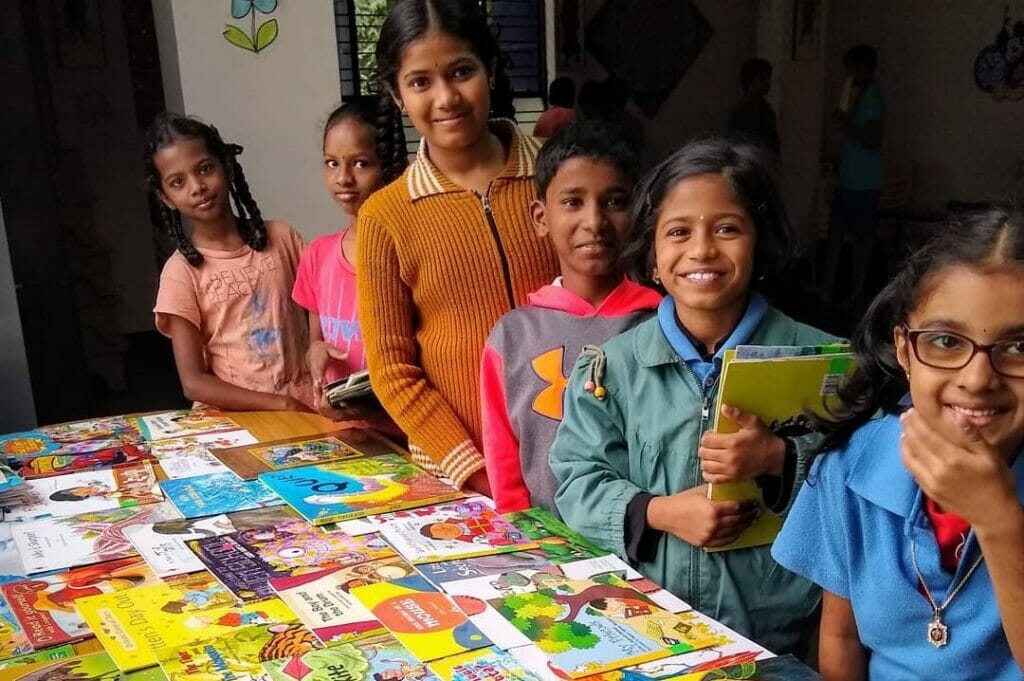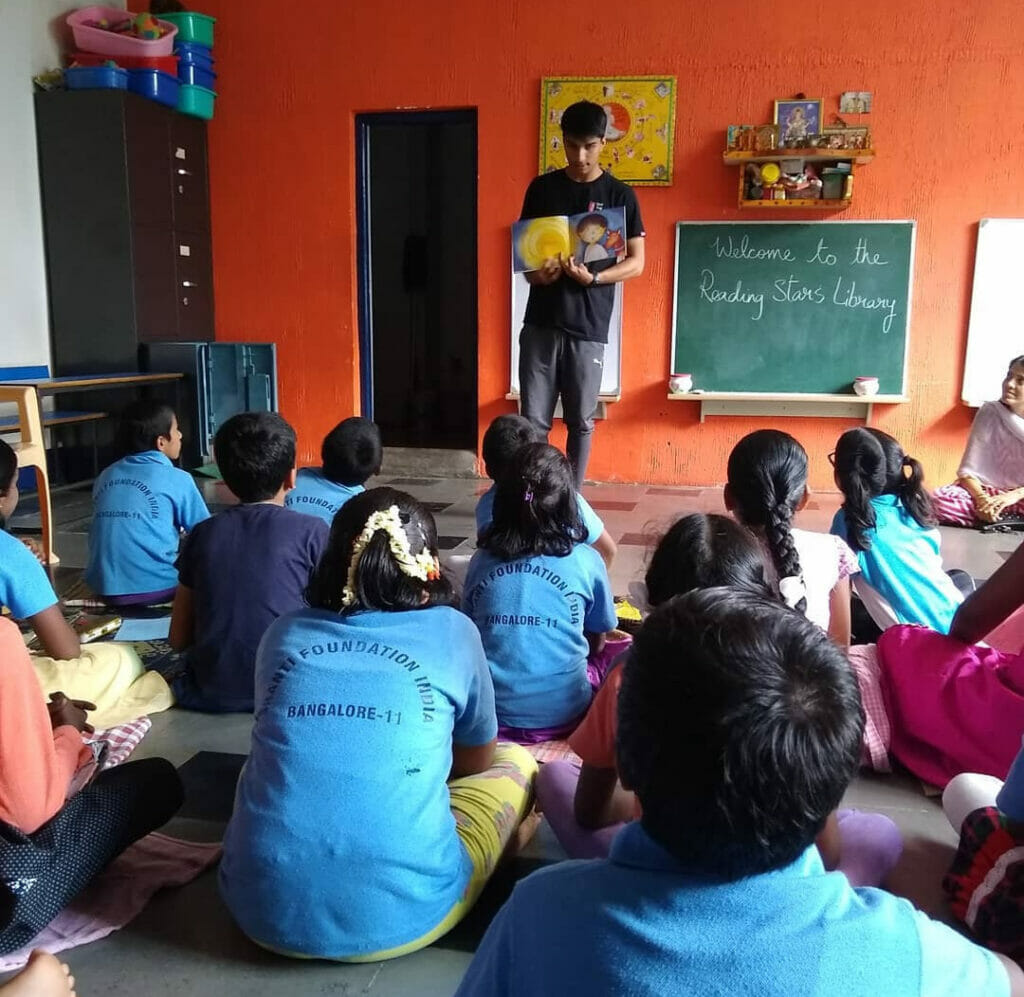Every day we see two Indias. One with Indians heading prestigious companies, one with high unemployment rates. One where children thrive in online classrooms, learning new digital skills and coding games and one where 15-year olds struggle with reading from a children’s picture book. As a country we have taken gigantic strides, while leaving so many of our own behind.
The real status of literacy in India
One morning, I saw my maid’s daughter, who was educated in an English medium school and is pursuing her Bachelor’s in commerce, struggle to read and understand a story meant for Grade 2 students. This made me want to understand our education system. I assumed children read only their textbooks and aren’t exposed to general reading. I visited schools in my neighbourhood, spoke to principals and teachers and learnt that children don’t read textbooks either! They write down notes in class, memorise them and reproduce them in exams.
Year after year ASER (Annual Status of Education Report) flags gaps in basic literacy levels. The ASER 2022 survey shows that nearly 80% of class 3 students are unable to read at the level of class 2 students. Nearly 58% of class 5 children are unable to read class 2 text.
The problem compounds as they move to higher classes. When children read and comprehend poorly, there is loss of interest and school dropouts. Or our schools produce batches of “educated” children whose poor comprehension defeats the purpose of this education. These statistics are disturbing and we need to understand how we are failing our children and devise thoughtful solutions.
Can libraries help?
Libraries are a powerful tool to address the issues plaguing the education system. Libraries can welcome new readers and make reading less intimidating. A joy for reading translates into thinking and expressing. It is no coincidence that Indian states with high literacy rates also have the highest number of public libraries.
In India, we have too few public libraries. In Bangalore there are about four public (i.e. govt. administered) libraries, including one public children’s library. Most public libraries have no outreach program or special programmes for first generation learners. They are also difficult to access – with barriers like fees, membership forms and provide little assistance in navigating the library.
Read more: Why there is a need to revamp the Karnataka Public Libraries Act, 1965
Public schools and low budget schools in Bangalore usually have a library period once a week as part of their curriculum. Often this period is used to get children to update their notes. Sometimes, they are issued a book with instructions to return it. Classroom libraries are nearly non-existent.
Filling the gaps
I continued my conversations with Principals, school heads and teachers. I started volunteering at a school, taking classes to inspire children with lives of famous leaders and achievers. Simultaneously I started to educate myself, about reading and reading tools for first generation readers. I met people who had set up community libraries which welcomed those typically excluded from the world of reading.
Many of my assumptions were overturned. After trials and errors, Reading Stars India was born, a non-profit organisation I founded in 2018, to address these issues through classroom libraries. Reading Stars India believes that children who read for joy can imagine better lives and futures. Books and libraries don’t simply teach a language or improve literacy, they empower. They provide a toolkit that lets children think for themselves.
Read more: Books in their hand, dreams in their head: Community library project changes kids
Today Reading Stars India, partners with schools to implement and monitor a Classroom Library Program (CLP), which requires at least five library classes in a week. We currently work with three schools in Bangalore and one in Hyderabad.
The CLP starts with a process to diagnose children’s current reading ability. Second, we curate and build a collection of books. These are stored in the classroom in open shelves and a process set up encouraging children to browse, choose and issue books. We train teachers on effectively utilising the classroom library. This training includes things like simply regularly reading aloud from a book, proving scaffolding where children do not have the necessary language skills to follow a read aloud, devising games and activities that encourage engagement with the book. At the core is the objective to make the classroom library a welcoming and empowering space, and ensure participation.

The Reading Stars journey has had many detours. The pandemic forced us to innovate. We sent curated book bundles for children to read at home. We launched “ComeReadWithMe” — a project where multiple volunteers helped us in creating quality, light videos of book read-alouds, with follow up activities. We also run a community library in Jayanagar open to all, which unfortunately had to close during the pandemic and is currently dormant.
Reading Stars India now wants to grow, increase its presence in schools and re-open the community library in Jayanagar.
Building library networks and infrastructure
My journey has reawakened my love for reading and reinforced a valuable lesson in the transformative power of a library. It made me question why our governments don’t prioritise public library infrastructure investment. It makes me wonder why more schools and education policies don’t seriously integrate libraries into curriculums.

Reading Stars India is now a part of a network of libraries, called the Free Libraries Network, where over 140+ community libraries, librarians and educators come together to share resources and techniques. They believe in bringing into their fold those with little-to-no access to books, information and formal learning institutions. We advocate for recognition of the role of libraries in schools and our education policies.
My Reading Stars India journey has been rewarding. I have seen children who struggled to read now confidently picking their own books and expressing themselves. I saw a batch of students translate books into their own local languages. All of our children should have this space and environment that encourages them, listens to them and empowers them. Public Libraries and School libraries can be this space.
If you would like to volunteer with Reading Stars India, email: readingstarsindia@gmail.com or call +91 9945679991.
More information on the Free Library Network is available at www.fln.org.in